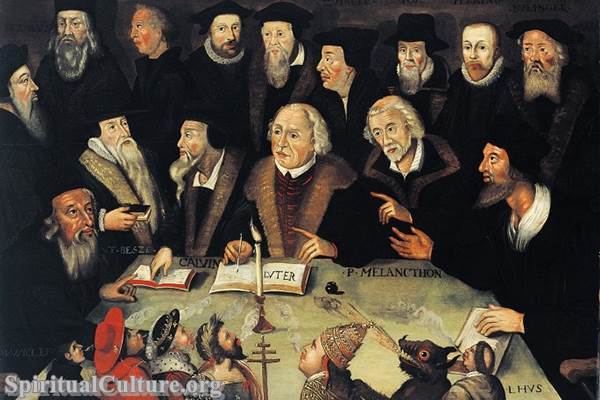The Reformation was a movement in the 16th century that resulted in the Protestant branch of Christianity splitting from the Roman Catholic Church.
It was initiated by Martin Luther, a German monk, and theologian, who published his Ninety-Five Theses in 1517, which challenged the teachings and practices of the Catholic Church. The Reformation was successful in Europe for a number of the following reasons.

One reason was that it appealed to a wide range of people who were disillusioned with the Catholic Church. Many people were unhappy with the corruption, greed, and extravagance they saw in the Church, and the Reformation offered a new way of understanding Christianity that was more aligned with their values.
Another reason was that the Reformation took advantage of the new technologies and innovations of the time, such as the printing press, which made it easier to spread ideas and information. The Reformation also benefited from the political climate in Europe, as many rulers saw the opportunity to use the movement to increase their power and influence.
In addition, several other factors contributed to the success of the Reform. That is:
The rising tide of nationalism swept Europe at the time. Many people saw the Reformation as a way to assert their national identity and independence from the Catholic Church, which was seen as being dominated by foreign (primarily Italian) interests. This appeal to national pride helped to fuel the spread of the Reformation and led to its adoption by many rulers as a way to consolidate their power.
The growing intellectual and cultural movement known as the Renaissance emphasized humanism, critical thinking, and the pursuit of knowledge. The ideas of the Renaissance, which were based on a rediscovery and reinterpretation of the classical learning of ancient Greece and Rome, were influential in shaping the thinking of many of the leading figures of the Reformation.
Finally, the Reformation was successful because it resonated with people’s spiritual needs and offered a message of hope and salvation that was meaningful to them. Despite the conflict and violence it caused, the Reformation ultimately led to the proliferation of new forms of Christianity and contributed to the development of modern Western society.



